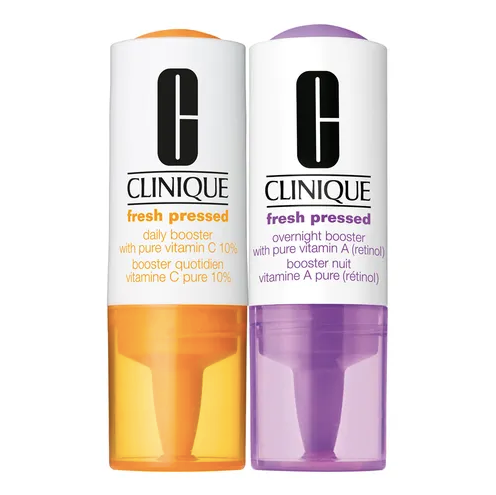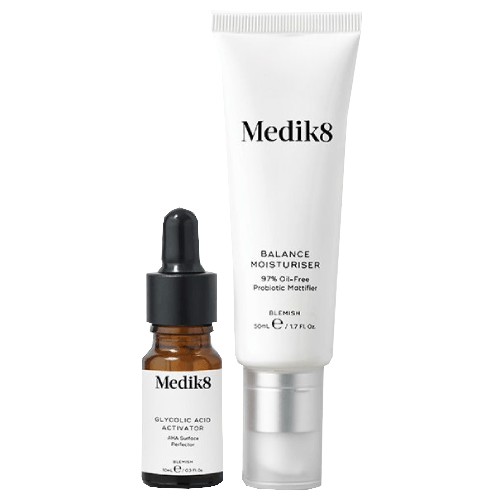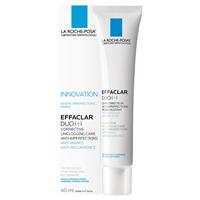You Need To Stop Believing This Oily Skin Myth, According To Dermatologists
Photographed by Caroline Tompkins
At Refinery29 Australia, we’re here to help you navigate this overwhelming world of stuff. All of our picks are independently selected and curated by the editorial team, but we may earn commission or other compensation from the links on this page.
If you have excessively oily skin, chances are you've tried everything to combat it: acids, mattifying primers, oil-free foundation – the list goes on. One oily skin 'tip' that is currently doing the rounds in the skincare sphere has proven to be a concern to dermatologists, though...
In a bid to stop the daily oil slick, you might have come across information that suggests your overly oily complexion could be a result of dehydration. Dehydrated skin lacks water or moisture (resulting in tightness, fine lines and dullness to name a few symptoms), and some experts argue that this kickstarts our skin into producing more oil to compensate. Cue a number of people shelling out on expensive facial oils and occlusive moisturisers to counteract the shine, only to find their skin is getting oilier or breaking out. So what's the truth?
AdvertisementADVERTISEMENT
"Oil production and skin hydration are two separate things," dermatologist Emma Wedgeworth told R29 when we asked whether dehydrated skin really produces more oil to make up for a lack of moisture. "It’s a myth and it's something we dermatologists see all the time. Often, people come into clinic and I ask them to run through their skincare routine and they tell me they’ve been using oils to hydrate, even though they’ve got really oily skin and spots. It is really interesting."
What causes oily skin, then? "It’s all about the settings on your sebaceous glands and everyone is different," continued Dr Wedgeworth, something consultant dermatologist Dr Anjali Mahto expands on: "Much of it is genetically controlled. We 'inherit' the size of our sebaceous (oil) glands but other risk factors for oily skin include exposure to humid climates, ethnicity and conditions with elevated androgen (male) hormones such as PCOS." Dr Mahto continued: "People are referring to two different things here. Dehydration is a lack of water in the skin (or increased water loss through the skin barrier), which can occur due to using harsh skincare products and air conditioning, for example. But there isn’t any evidence that oily skin is due to dehydration or lack of water, which is what dehydration really means."
So there we have it – there isn't really a link at all. Instead of plying your already oily skin with facial oils and heavy creams, here's how to minimise oil production effectively.
What are retinoids and how do you use them?
AdvertisementADVERTISEMENT
Research has found that topical retinoids (vitamin A) visibly reduce pore size. Larger pores have a tendency to produce larger amounts of oil. Try Clinique's new Fresh Pressed 0.3% Retinol Booster, $62, which comes with vitamin C.
What is niacinamide and how do you use it?
Otherwise known as vitamin B3, niacinamide regulates oil production, according to Dr Mahto, which means it also minimises congestion in the skin, which can lead to breakouts. Kirsti Shuba, skin pro and founder of Katherine Daniels, also rates niacinamide for its ability to improve the skin's barrier, which reduces water loss and therefore prevents dehydration. Dr Mahto recommends a minimum strength of 2% in topical products.
What is salicylic acid and how do you use it?
If your skin is super oily, you might experience pesky blackheads, but topical salicylic acid exfoliates the surface and penetrates pores to dislodge the paste-like mixture of oil and dead skin cells that can cause them. If you're using any kind of acid, always apply sun protection during the day, as they tend to increase skin sensitivity.
Should you use moisturiser if you have oily skin?
Just because your skin is producing extra oil, doesn't mean it's lacking in water. In other words, don't forgo the moisturiser entirely. Instead, swap clogging creams for light, oil-free products (the same goes for foundation) that combine the above topical ingredients. Dermatologists rate Medik8's Balance Moisturiser, $98, and La Roche-Posay's Effaclar Duo+, $24, for hydrating skin without contributing to shine.
How can oral medication help reduce oil?
Dr Mahto explains that isotretinoin (aka Roaccutane), spironolactone (a female-only, off-label pill) and the combined pill are all oil-reducing options if topical products aren't working for you. You should discuss them with your GP or a qualified dermatologist.
AdvertisementADVERTISEMENT









